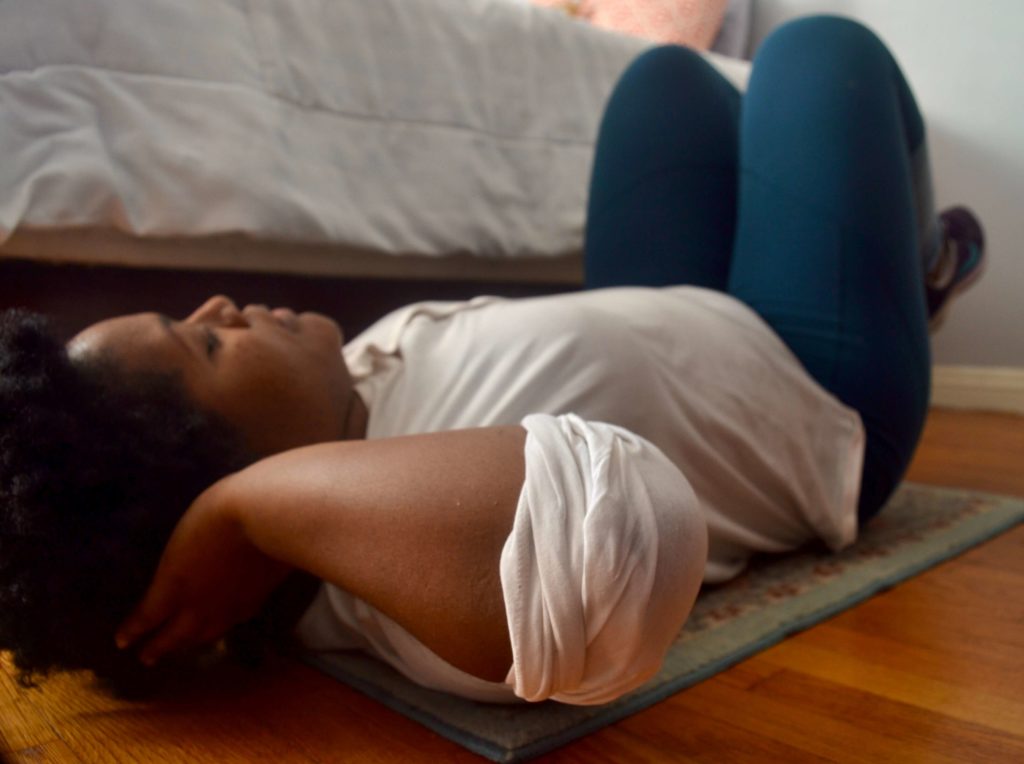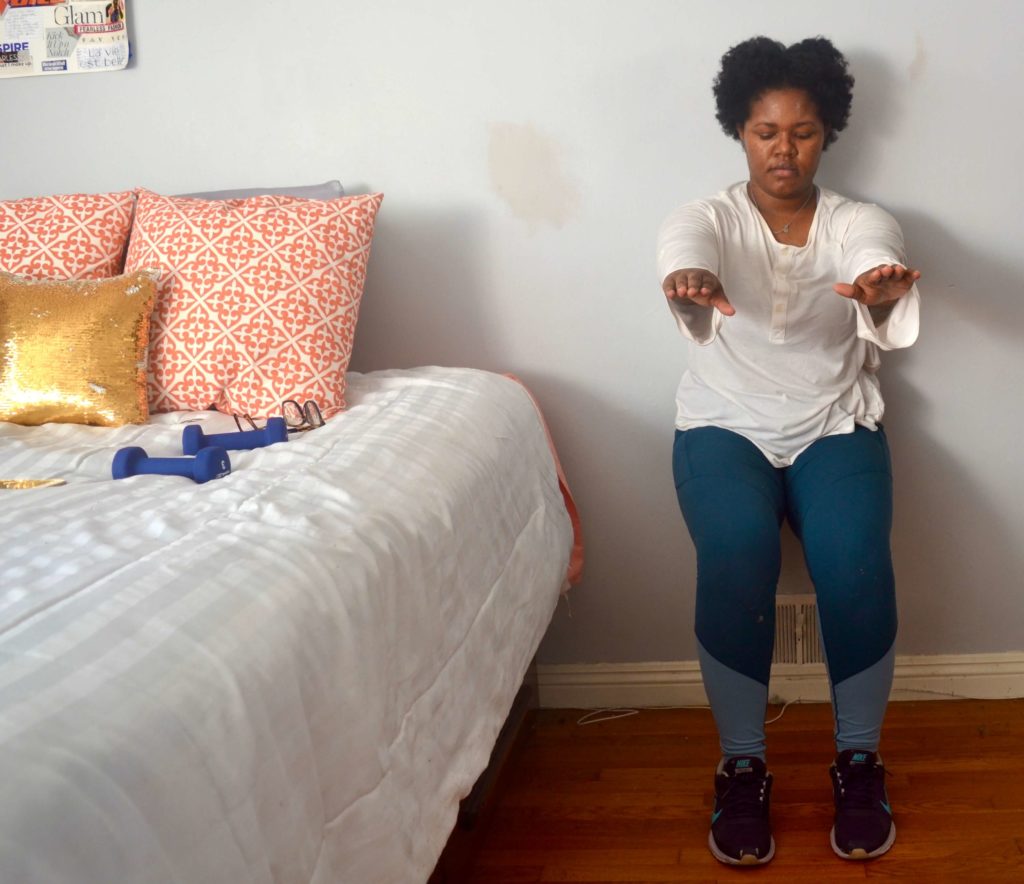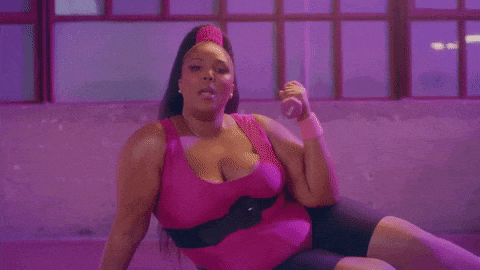I have a not-so-secret secret to tell you. It’s something that we all know in our hearts to be true. We perpetuate it with our media, our culture and our lifestyles without regard for how it’ll make people feel. Or, maybe we know exactly what we’re saying and what we’re doing. Are you ready? FATPHOBIA IS REAL. If the caps are too much for you, then that might be tied to how you’d prefer for people to take up space.
As someone who started to gain weight in college, and only recently acknowledged the universal fear around being fat, I know that I am stating the obvious. Fat people and allies have been telling us this all along. While we were conflating fatness and laziness, assuming the root of people’s health concerns was their weight, and avoiding relationships with fat people because of societal standards, we were also being fatphobic. We did all of this while killing ourselves in the gym and starving ourselves with the hopes of developing a body type that would appease the societal gaze.
So that begs the question: is the pursuit of weight loss and good health rooted in fatphobia?
Recently, photos of pop star Adele surfaced, and the 15-time, Grammy-award winning singer was visibly thinner. When I saw the photos of her in a little black dress enjoying her birthday party, I knew this would become a conversation. She’s obviously lost a lot of weight, and people are blown away at her transformation. Celebrities, fans and fitness enthusiasts have been congratulating the singer in the comments of her photos and in their own posts. And, while this may be purely congratulatory, it could also be the blind association of her weight loss with a positive experience or the development of “healthy habits”. According to Adele’s trainer, she has been trying to lose weight. Similarly, fitness enthusiasts have also been preaching about how sheltering-in-place is giving everyone the opportunity to transform their bodies. They’ve gone as far as sharing at-home workouts on their social media accounts with some people appreciating the inspirational reminders, while others feel that the undertones of their encouragement is fatphobic.
I must say that staying-at-home has kicked my fitness into gear. Although, I’ve been transitioning into a healthier lifestyle for almost five months now. After the holidays, I decided to stop consuming meat and milk. I consider myself a pescatarian that sometimes eats ice cream and tries to limit enjoying carbs to once a day. I’ve also started doing virtual, at-home workouts, as a result of COVID-19.

Prior to the last five months, I’d tried a number of diets and workouts all of which were inspired by trips, familial comments and the inability to find fashionable clothes that fit my body. And while all of these reasons are real and relatable, I can now say that they were fear-based and fatphobic. I’ve lost weight and I’ve gained weight. I’ve had a slimmer body and a curvier body and I am grateful to finally be in a place where this is the most that I’ve ever loved my body even as I am active in making changes to it.
Is that even possible though? Can a person want to lose weight or work towards better health without the reason being tied to a fear of fatness? Anonymous writer and SELF magazine columnist, Your Fat Friend once wrote, “fatphobia keeps us in an endless cycle of dissatisfaction, frustration, and shame.”
When it comes to dissatisfaction, frustration and shame, thinner people seem to be doing the dishing. In 2019, model and activist La’Shaunae Steward was shamed by Xiaxue, a Youtuber who was discussing why “morbid obesity shouldn’t be celebrated” in one of her Instagram stories. The influencer has no ties to Steward , but somehow felt entitled to speaking on a total stranger’s body. Social media has become a playground for policing bodies, which has sparked conversations around cyberbullying and body image – both online and offline. It’s gotten so bad that Instagram itself has declared a war on cyberbullying due to issues like fat-shaming and other bad behaviors that have run wild on the platform.
TIME’s Entertainer of the Year Lizzo has knowingly and creatively ruffled the feathers of fatphobes everywhere. From the time that she came onto the scene, as a singer, flautist and overall icon, she’s been unapologetic about feeling good as hell in her skin. Her efforts to celebrate her body have been deemed “non-family friendly” and “inappropriate” when women with smaller bodies have been celebrated for doing the same.
The sexualization of women is still a topic that requires much-needed discourse, but the demonizing of big bodies in public and their fetishization in private could also use some attention. Clinical social worker and sex therapist, Sonalee Rashatwar addresses this topic by highlighting society’s habit of placing “romantic love over platonic love”. She goes on to note how fatphobia is a supremacism that’s structural, and how body positivity should be replaced by body neutrality—an act that frees brain space “taken up by food” and “monitoring what we look like”.

In a time when what we look like has a direct impact on our lives, how can we move from an authentic space and continue to take care of ourselves? I guess a semi-answer would be to exercise honesty when it comes to what’s fueling our body-related activities and perceptions, to make non-fatphobic decisions around our own health, and to (this is my favorite one) mind your business. Minding one’s own business has been tied not only to growth but an improved quality of life. If you’re not in the space yet to think and/or say positive things about other people no matter where they look like, practicing silence is one way to get there. Everyone is already constantly thinking about their bodies whether that’s due to body image, sex, fashion, career, school, family, fitness, eating, culture, productivity, or doctors in addition to the pursuit of love and respect. They don’t need your two cents!
Even when our intentions are good, telling someone they’ve lost weight ain’t it. Author, activist and weight-based discrimination expert Virgie Tovar wrote that comments like these “seem innocuous, but it actually creates an uncomfortable sense that people are surveilling and judging your body”. On that same note, fat people should not be celebrated as an act of parody or rebellion. Fat people deserve respect, love, access and opportunity just like everyone else because they’re people.
I’ve discovered this while subscribing to the “self-care” movement that has taken on an array of meanings. I realized that while my new fitness intentions are not to avoid being fat, I still have moments of being influenced by the media to feel certain ways about my body. To some people, no matter how much weight I lose I will always be fat, which is the case for all of us. What’s most important is how we feel about the act of being fat and how that shapes our ethics and our actions.
I will continue to draw attention to fatphobia and other causes that plague marginalized communities. However, I can’t help but also try to decrease my chances of experiencing the health conditions that have ravaged my family. I will continue to do the daily work of loving every stretch mark and dimple on my body because I believe that fat women, curvy women, and thin women deserve to be celebrated as well as incorporated into the mainstream. We have the power to change our views around this topic, but that requires listening more than talking, understanding more than judging, and living lovingly and freely above all.


